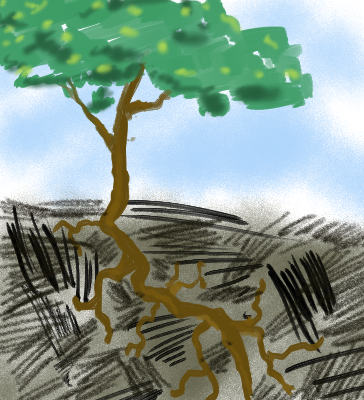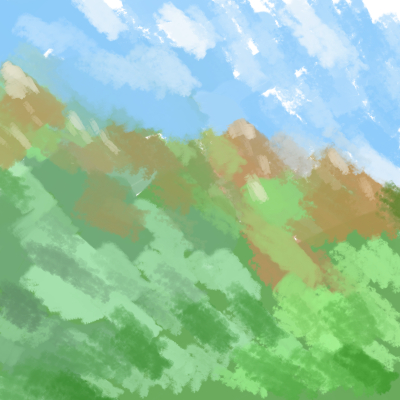Materialism: The Lower Nature & Development Part 1 1
We don’t make the sun shine. We don’t make food grow from the dirt. We didn’t create ourselves, and neither do we keep our hearts beating. And one fateful day we will certainly pass away. What am I getting at? This is a reminder of how dependent we are. But the lower nature, that stagnates on the material plane, tries life and limb to convince us that we, or whatever material thing we worship, are really independent.
Why does the lower nature insist upon materialism? Well, it’s the path of least resistance. It’s like a rock rolling downhill. That’s just how it works. Whether it’s object materialism (worshiping property: seeking its possession as life’s purpose and forsaking the higher nature in its pursuit)1, communal materialism (worshiping a community or system: seeking to be part of a community so we blindly obey its dictates even when it’s against our God-given, higher nature—this communal system can be religious, tribal, political, or whatever organizing institution you think of; this type of materialism is striking because it helps religious materialists realize their sickness),2 power materialism (worshiping our lower nature: seeking to serve our lower desires for power, influence, and lust), or pain materialism (fixating upon some worldly loss that detaches us from higher awareness and keeps us from developing and maturing).3
A person can lean more towards one type of materialism or be infected by all of them.
The purpose of God’s message is to help us develop from the lower, materialistic plane so that we could mature into aware beings. Don’t get me wrong. The material world is important; it’s our foundation for thought and inference that lead directly to the Creator:
“He makes the corn, the olive, the date-palms, the grapes, and every kind of fruit grow forth for you. In that is a sign for people who reflect” (16:11)
There you have it. We become aware by using our God-given faculties of thought and understanding to reflect upon the signs in the material world. This place is our womb for development. Serving the material world, a created thing, as if it were the Creator is the sickness that we’re being called to mature from. This is how we grow, how we live in awareness and tranquil positivity.
Remember the contrast of dependent and independent. The independent is always superior to the dependent, just as light is superior to night, heat is superior to cold, and so on. Everything material is dependent, and so it can never be worthy of worship (worship also means service.) Only the Independent, the Creator, is worthy of our worship.
This is part 1 of this article on materialism. Please click here to read part 2.
See you next post, God willing 🙂
Footnotes:
1. “Worship” here means anything that we serve, applying ourselves to obtain satisfaction or fulfill a purpose.
2. One sign of a religious materialist is a person who gives their system the attributes of God. They often judge others and condemn them to hell or bless them to Heaven, although these are God’s prerogatives. They declare that no one can have knowledge unless they go through their system, although God gives knowledge to whomever he pleases. It’s not an institution that gives knowledge to whomever it pleases. Religious materialists put limits on God’s power and confer those abilities to their system.
3. These categories of materialism aren’t mutually exclusive and their boundaries can be more blurred than strictly delineated.

